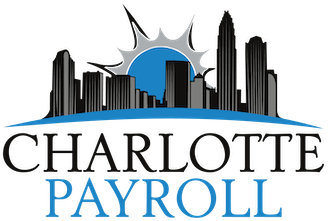Benjamin Franklin once proclaimed that “in this world nothing can be said to be certain, except death and taxes.” This includes your payroll taxes. Failure to remit payment of your payroll taxes can carry a hefty fine, and in some instances, even a jail sentence. An employer is required to withhold payroll taxes from their employees’ wages, and remit payment to the IRS. Another term that is used for this specific tax, is the trust fund tax. The money in this account belongs to the government, and they do not like anybody mishandling their funds. The IRS can be very aggressive when it comes to procuring what they believe to be theirs.
First, let us take a look at which taxes federal and state agencies will be looking for you as an employer, to hand over.
- Federal income tax (FIT) is a tax collected by the IRS on annual earnings of individuals, corporations, trusts, and other legal entities. This tax is applied to all forms of taxable income, which is the gross income of an individual or corporation minus permissible tax deductions. So, any type of income that fall under taxable income, must be reported to the IRS. Most states also have state income tax (SIT), other than Alaska, Florida, Nevada, South Dakota, Texas, Washington and Wyoming. Each state determines its set of deductions and credits as it pertains to SIT. Federal and state income tax are applied to the national defense program, veterans, foreign affairs, social programs, community development, law enforcement, and interest on national debt.
- Social Security Taxes, commonly referred to as FICA (Federal Insurance Contributions Act), provide retirement benefits, benefits for dependents of retired workers, and benefits for the disabled and their dependents. The tax was enacted in 1935 as a measure to ensure workers, who had spent their live gainfully employed, would have something to retire with. Most working adults had a very difficult time saving money, as they still do to this very day, so the government stepped in to aid, simply in the form of a program that the employee is required to pay into. This tax is paid by employees and employers.
- Medicare taxes are paid by both the employee and employer, to cover the medical benefits for people over 65 years of age. The tax rate is 2.9%, half of which is deducted from the employees’ paycheck and the other half is covered by the employer. Medicare benefits extend to workers, retired workers, and the spouses of workers, all upon reaching the age of 65.
Penalties for failure to pay your payroll taxes can be just as complicated as the taxes themselves, but to give you an idea, this is a 10,000-ft view of what you can expect. The government is looking for “willful neglect” involved with your trust taxes. That is the terminology used when determining if penalties shall be levied, and is defined as the willful failure to collect tax, to account for and pay, or attempt in any manner to evade or defeat tax of the payment thereof. If found to be guilty of willful neglect, the United States Treasury has the system designed so the longer you delay paying taxes owed, the more you will owe. You as the owner, are going to be the responsible party, regardless of who you have in your employ to handle such matters. And the Trust Fund Recovery Penalty is 100% of the unpaid amount of taxes listed above. Furthermore, the penalty is not forgiven in the event of bankruptcy, and interest is accrued on top of the penalties. Moral to the story… pay your taxes.
Charlotte Payroll provides as standard our payroll tax filing services. We will draft and via EFTPS submit all taxes when due. Our tax penalty guarantee gives you peace of mind knowing your business is compliant! We have a team of dedicated professionals ready to assist you with all your payroll, time and attendance, and HR needs. We offer a full in-the-cloud experience that maximizes efficiency. Our SaasHR platform can be tailored for any size business to run on any device. Process payroll in minutes with our solution so you can get back to running your business. Call us today at 704-887-5511.






